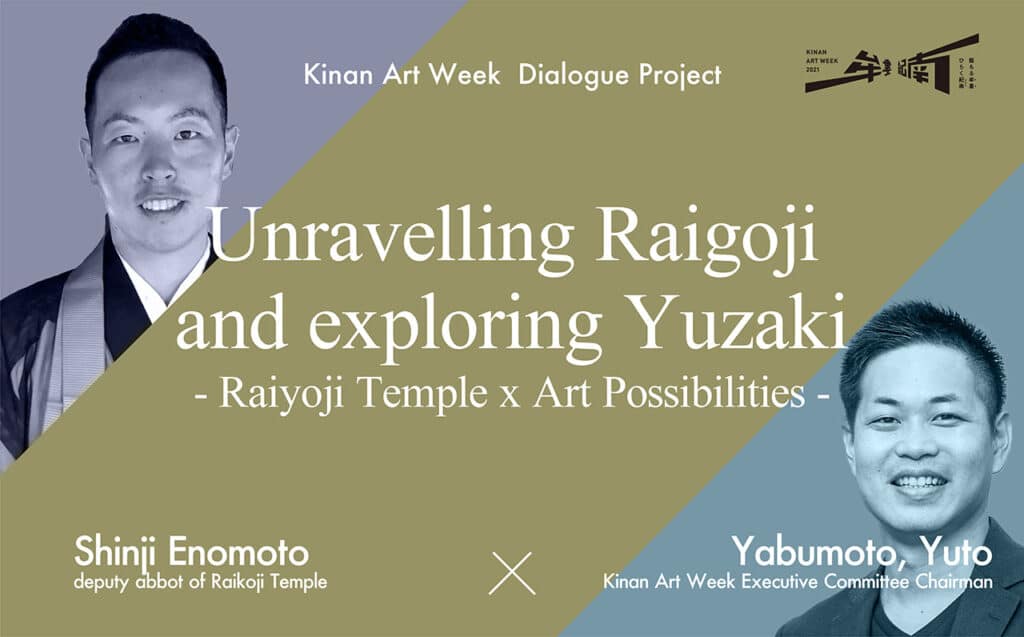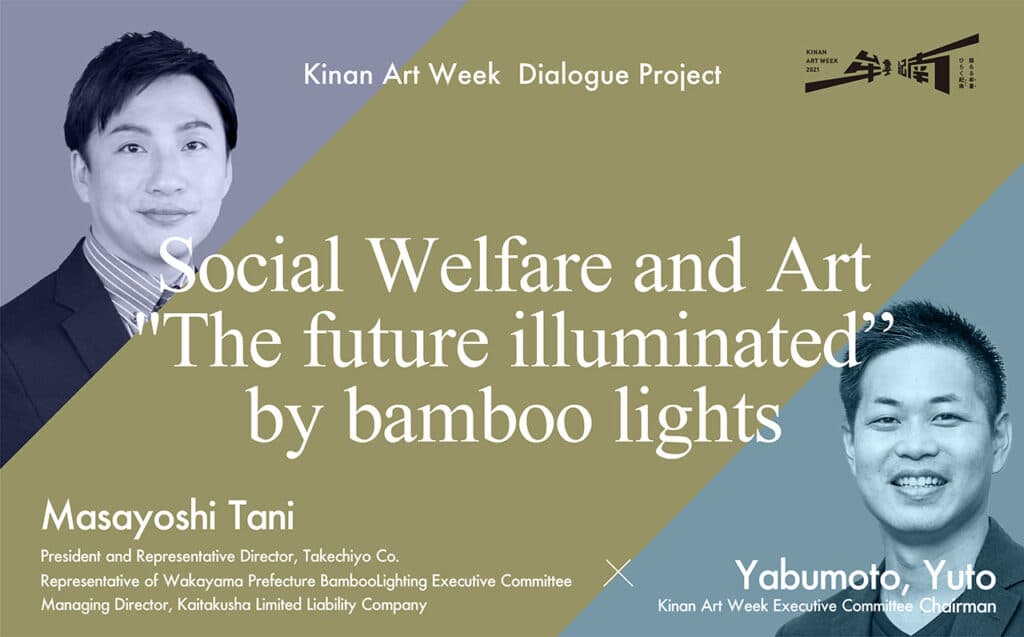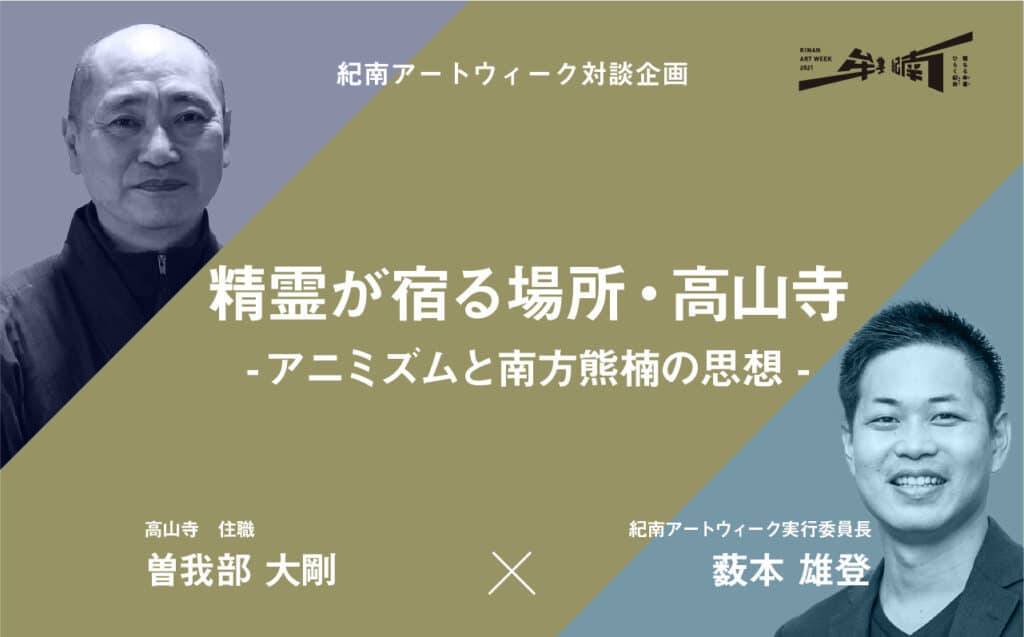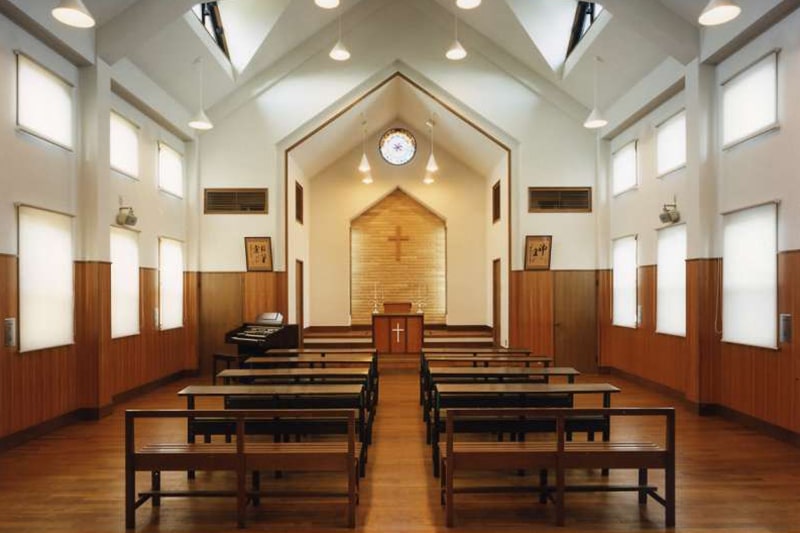
Dialogue #30 The Role of the Church and the Future of Kinan
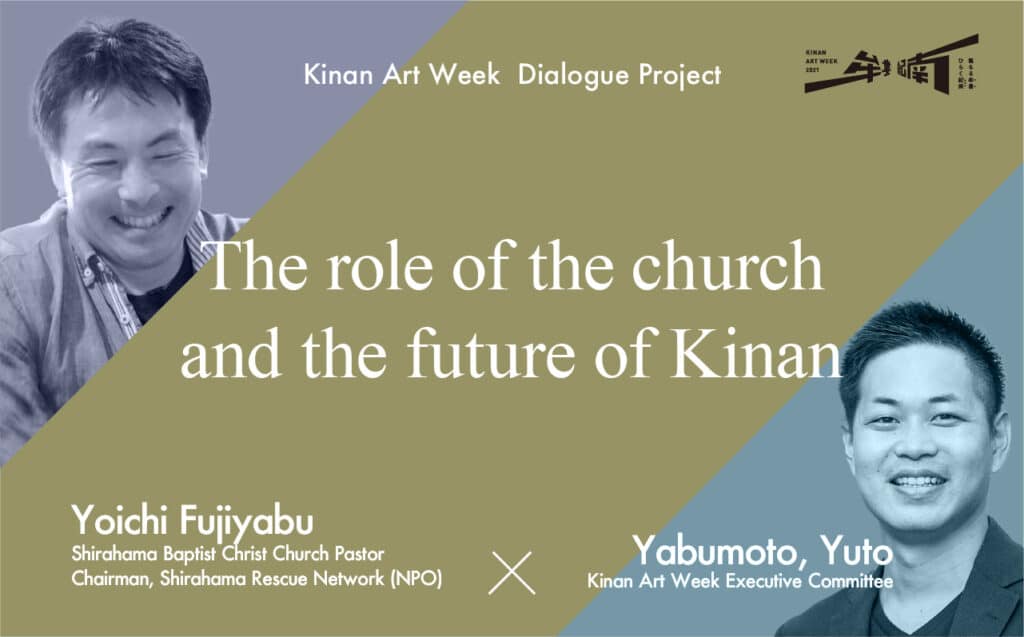
◆Kinan Art Week Dialogue #30
Guest
Shirahama Baptist Christ Church Pastor
Chairman, Shirahama Rescue Network (NPO)
Yoichi Fujiyabu
Born in Shirahama Town, Wakayama Prefecture.He took over the church from his mentor, Taro Emi, in 1999 and has been working as a pastor for over 20 years to help solve problems in the community. As the chairman of the Shirahama Rescue Network, he is involved in the life-saving “Inochi no Denwa” (Life Call) program, supporting the social reintegration of those in his care, and fostering the basic academic and social skills of children.
Shirahama Baptist Christ Church
Shirahama Rescue Network (NPO)
Interviewer
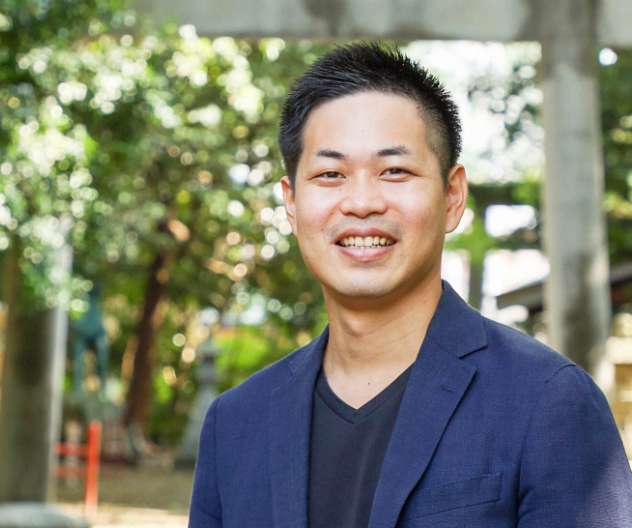
Yuto Yabumoto
Kinan Art Week Executive Committee Chair
<Editing>
Kinan Editor by TETAU
https://good.tetau.jp/
The Role of the Church and the Future of Kinan
Table of Contents
1. Introduction of Mr. Fujiyabu
2. Pastoral care
3. Shirahama Rescue Network activities
4. ‘The end’ and what we leave for the future
5. Church and art
6. The future of the Kinan region
1. Introduction of Mr. Fujiyabu
Yabumoto:
Thank you very much for your time. Today we would like to talk to Mr. Fujiyabu about what he has been doing, the role of the church and the future of the Kinan region.
First of all, please introduce yourself, Mr. Fujiyabu.
Mr. Fujiyabu:
I was born on August 6, 1972 and have grown up in Shirahama ever since I was a child. After graduating from Tonda Primary School, Tonda Junior High School and Kumano High School, I studied to become a pastor at Tokyo Christian University, Faculty of Theology* before returning to Shirahama in 1996.
*Reference Tokyo Christian University
My family is a parishioner of Sodoji Temple* and I did not come from a Christian family. I started going to church when I was in the first grade of primary school. I was invited by my neighbor who lived nearby to attend the church school which was held every Sunday.
Shirahama Baptist Christian Church was established in 1953, and in April 1979 my former teacher, Dr. Taro Emi, started the “Inochi no Denwa*” (life call ) to save lives. After returning to Shirahama, I worked for him for three years, and in 1999 I took over the church and the activities of Inochi no Denwa. By the time I took over the church, he had already taken care of 672 people.
*Reference Nanshozan Sodoji Temple (Kumano Mandala)
*Reference: Activities (NPO Shirahama Rescue Network)
Yabumoto:
What kind of person was Dr. Emi?
Mr. Fujiyabu:
Dr. Emi is from Okayama prefecture and I think his parents’ house was a shrine. When he was studying to become a pastor, he travelled to Shirahama and at Sandanbeki(a cliff 50 meters high) he saw a stone monument called “Lipstick Monument”, which is said to have been left by a person who committed suicide with lipstick. He told us about this event and said that he thought that if he were to be sent to Shirahama, he would work to prevent suicide. After that, he came to Shirahama as a pastor, and at first he concentrated on his pastoral work, but later he started the activities of Inochi no Denwa. Dr. Emi also pastored in Susami and Kushimoto in the past, and he was a really vital teacher.
2. Pastoral care
Yabumoto:
What was it that inspired you to become a pastor?
Mr. Fujiyabu:
I think one of the reasons is that I was drawn to the Bible, which I have been familiar with since I was a child. There are many different stories in the Bible, but basically they all tell us the right things. There is a sense of clarity about the way forward, and a sense of neatness in knowing that the choice you make makes sense to you. That’s what I find so fascinating about the Bible.
The Bible also tells the story of the cross, where Jesus Christ laid down his life for all people*. The same is true of his disciples, who are portrayed in the Bible as risking their lives for the teachings of Jesus. My admiration for this kind of hard work is one of the reasons why I want to become a pastor.
*Reference What is a crucifix (Kotobank)?
Yabumoto:
As a pastor, how does Fujiyabu feel about what he does?
Mr. Fujiyabu:
I am particularly conscious of the three roles that the church has to play. To point to God, to speak the Bible, and to live according to the teachings of the Bible. I thought that these are the things that I must continue to do after I took over the church from Dr. Emi.
From the point of view of “pointing the way”, I think my own “way of being a pastor” is also very important.. I am constantly being watched by people from all walks of life, from the community to the Christians who attend my church, to see who I am and what I think. So I feel that I need to not only demonstrate my own actions and beliefs, but also help the Christians in my church to understand and grow the church as a whole.
I also actively participate in various activities in the community according to the two teachings in the Bible*: “Love God” and “Love your neighbour”. It’s not only about loving the people in the community, but it’s also about loving God because it’s a place where I can put God’s teachings into practice. With this in mind, I continue to work steadily to solve problems in the community.
*Reference “Love God and Love Your Neighbor Matthew 22:34-40” (Moriya Bible Society, August 3, 2014)
I have a particularly strong conviction about the work we continue to do with Inochi no Denwa. It is not only me, but also my co-workers in the church who support it together. However, sometimes we see the ugly side of humanity and it can crush our hearts, no matter how noble our aspirations are. That’s why it’s an activity that requires a lot of determination.
Yabumoto:
I think it is not a job that an ordinary person can do. There is always the possibility that someone will call you and it’s really amazing that you live in such a situation.
Mr. Fujiyabu:
There’s a word in the Bible called ‘devotion*’. It means “to give one’s all to God”, and I think that the question of a pastor’s qualifications is exactly whether he or she is committed. It is only when you have done this that you can make a start. If you can do this, then you can start to understand what it means to be a pastor, and eventually you will be able to say, “God’s will is my dream”.
*Reference What is devotion (Kotobank)
3. Shirahama Rescue Network activities
Yabumoto:
Mr. Fujiyabu, you are also the president of the Shirahama Rescue Network, a non-profit organization*. How was this organization established?
*Reference: Overview of the NPO System (NPO website, Cabinet Office)
*Reference Outline of the organization (Specified Non-profit Organization Shirahama Rescue Network)
Mr. Fujiyabu:
Originally, we didn’t want to be an NPO. While we were working with the government and various organizations, people around us asked us to have a face other than that of a religious corporation. So we set up a non-profit organization and started to practice the activities that we had been doing in the church before in the Shirahama Rescue Network.
I believe that one of the advantages of NPOs is that they are a “link”. In order to make full use of the policies and functions that each government agency has, we need a place to buy time. It takes a long time to make policy decisions about support measures and so on. I think that the value of NPOs is to act as a bridge between people who need help and the government.
Yabumoto:
In other words, does the Shirahama Rescue Network serve as a “safety net “*1?
*1 A system or mechanism designed to avoid or minimise damage in the event of foreseeable danger or damage.
Mr. Fujiyabu:
That’s exactly what we do. We have been working to protect people who want to end their life at the Sandanbeki, and to reintegrate them into society. However, some of the people who came back to the society couldn’t keep the job which they got after hard work. We wanted to reduce the number of such people, so we decided to provide livelihood and vocational training.
The first thing we did was to help them learn the basic rhythm of life in a communal setting. Then we opened the “Machinaka Kitchen*”, a bento and delicatessen shop, to provide them with a training place to learn how to work and interact with others.
*Reference Yoichi Fujiyabu (@machinakakitchen, Instagram)
*Reference Machinaka Kitchen (yobareyora.com)
Yabumoto:
In the process of helping people to reintegrate into society, I think we are faced with the fundamental question of why people are forced to choose suicide in the first place. For me, I feel that it has to do with the life the person has led, or more specifically, whether they have had good experiences since childhood. In this sense, perhaps the next step is to support education.
Mr. Fujiyabu:
That’s exactly what I’m talking about. What kind of relationships have you formed and what kind of education have you received during your compulsory education? This is what is so important for a child’s development. Based on this idea, we have been providing school children’s care since before nursery schools were established in our area.
For example, the Hajime Ningen Nature School, where children are given tasks to work on as a team, and the After School Club “Copel-kun”, where children meet after school to study and develop their basic academic skills. Both of these initiatives were started in the hope that the children would gain a variety of experiences and develop social skills.
Mr. Fujiyabu:
In April last year, we formed a partnership with Meisei High School* in Shimane Prefecture to open Meisei High School Wakayama Shirahama SHIP*, a correspondence high school where students can obtain a high school diploma. There has been no high school in Shirahama for a long time, and some children who attend nearby correspondence high schools quit midway through their studies. The reason for this is that it is difficult for them to continue attending, so we decided to open the school in order to help children with this problem.
*Reference: Masuda Nagashima Gakuen Meisei High School
4. ‘The end’ and what we leave for the future
Yabumoto:
On a very abstract level, what do you think people should do with their lives?
Mr. Fujiyabu:
I believe that everything that exists in this world has an end. My life has an end, and I don’t know if the Church will last forever. I think it’s important to live with the idea that we are coming to an end, or to think about what we are leaving behind for the future. I have become ill and I can no longer work in exactly the same way as before. So, from now on, I am planning to share my beliefs with the people I work with in the church and delegate some of the church’s activities to them. I believe that in the future this church will be taken over by someone else, and I want to make sure that I pass on my “dedication” to serve the community.
Yabumoto:
Since the teachings of the Bible have been handed down for hundreds and thousands of years, I think it is highly likely that their value will not fade away. However, it seems to me that the practitioners of the Bible’s teachings need to organise and edit their ideas so that they can be communicated well.
You say that it is important to live in the midst of the end, but should we also emphasise the importance of the “end of life”?
Mr. Fujiyabu:
I think that the coming of the end is a kind of hope. It has the connotation of decay, but it can also be taken to mean “reaching the goal”. And what we have achieved after all our hard work could lead to a new path. In other words, reaching the end of the world is “leading to the future”. All the people we shelter in our church have their own worries and anxieties. We want to stay close to their hearts and continue to help them to solve their problems.
5. Church and art
Yabumoto:
At the moment we are preparing for a project on the subject of Mandarin oranges. Next year we are planning to organise an event that encompasses social inclusion, export and entertainment, all within the context of the mandarin oranges.
By the way, what are some of the stories in the Bible where oranges are mentioned?
Mr. Fujiyabu:
A story about oranges… I wonder if there’s one like that. I’ll have a look next time (laughs).
Yabumoto:
For example, the Tachibana tree appears in Japanese mythology*. I would like to create an educational ripple effect by finding a connection between oranges and religions such as mythology and Christianity. It would also be interesting to collect and organise artworks and their accompanying information in relation to the history of Christian art.
In the future, I would like to work with educational institutions as well as temples, shrines and churches that I am interested in. I’m trying to become an anthropologist in the field, so I’d like to do some things from an anthropologist’s point of view.
Mr. Fujiyabu:
Every year, members of our church community work part-time harvesting and selecting mandarin oranges. It may not have much to do with art or religion, but if the theme is oranges, this is a good way to connect.
Yabumoto:
I see. I think it’s nice to have that kind of connection.
How do you see art and culture from the perspective of the Church?
Mr. Fujiyabu:
I think they are very valuable and should definitely be preserved for future generations. For example, Western paintings, poetry and books with a Christian theme. These materials have had a great influence on our times. Other films have been made which use Christianity as a backdrop to their work, and I think this is a “good example” of how the teachings of the Bible can be communicated in a way that is easy to understand.
Yabumoto:
In this sense, it may be effective to “use art to communicate religious teachings in a way that is easy to understand,” as Hakuin Ekaku* once practiced.
*Reference: What is Hakuin Ekaku (Kotobank)?
6. The future of the Kinan region
Yabumoto:
What do you think the Kinan region should look like in the future?
Mr. Fujiyabu:
The Kinan region has the advantage of strong people-to-people links and easy cooperation with various institutions, including the government. I think we should promote these relationships as an attraction of Kinan. It may be normal for local people, but in fact, it is becoming something special throughout the country.
Occasionally, Shirahama is taken up as a model case and people from the city come to visit. However, even when we show them how we are steadily building connections within the community and facing challenges one by one, they often just say, “We can’t copy that in the city. This has been the case for about 10 years now, and I hope that things will gradually change and that the “rich connections” that Kinan has are really valuable, and that we can leave them to the future.
Yabumoto:
We not only aim to export through Kinan Art Week, but also to give back the resources to the issues of poverty, education and social welfare. If there is anything we can do together in this regard, we would be very happy to hear from you.
Finally, what are your expectations of us?
Mr. Fujiyabu:
I don’t know much about the world of art, but I am interested in the extent to which art has the power to communicate and influence. In this sense, I am very much looking forward to being a participant and experiencing the appeal of art myself. If there is anything we can do to help, please let us know.
Yabumoto:
As for the function of art, I find its “breadth and depth” particularly interesting. If you take all this seriously, you might get a flat head, but I think that’s the fun of art. It’s not just art, it’s culture. We hope to be a kind of cultural agent, a mediator of cultures.
I learned a lot today. Thank you very much.
Mr. Fujiyabu:
Thank you very much.

